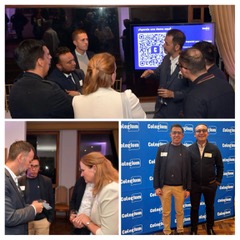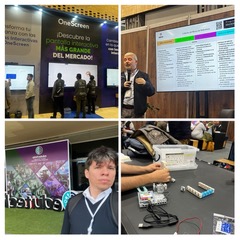As members of the Computer Science department at the Colombo American School, we recently attended two important events that focused on educational innovation: the Edutechnia Fair and the Colegium event, which we were invited to by the Chilean Embassy.
Edutechnia Fair: Technology Driving Change in Education
The Edutechnia Fair brought together educators, tech companies, and innovators to present the latest trends in educational technology. It was exciting to see how schools around Colombia are beginning to adopt new tools that change the way students learn and interact in the classroom.
At the fair, we encountered several new platforms, such as virtual reality (VR) systems that help students immerse themselves in different subjects using interactive experiences. Another standout was the use of artificial intelligence (AI) in personalized learning. These tools are able to assess each student’s individual strengths and weaknesses and provide them with tailored exercises, creating a more customized learning experience.
Colegium: Streamlining Educational Systems
The Colegium event, organized by the Chilean Embassy, took a different approach, focusing more on educational management and communication tools. This event showcased software that helps schools run more smoothly by improving how teachers, students, and parents interact.
One of the main takeaways from Colegium was the importance of data management and how it can be used to track student performance over time. We saw examples of modules that allow teachers to monitor each student’s progress, identify areas where they may need extra support, and communicate directly with parents. The goal is to create a more connected school environment, where everyone involved in a student’s education is on the same page.
Our team left these events with fresh ideas on how to apply these tools in our own classrooms at the Colombo American School. For example, we are considering introducing AI-driven platforms that provide personalized support to students, as well as exploring how to integrate more interactive tools like VR into our lessons.
These events also reminded us of the importance of staying connected with the global education community. By learning from other schools and educators, we can better understand how to adapt new technologies to our own context and ensure that we are preparing our students for the future.










